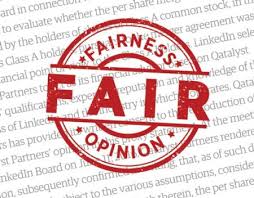|
Reduce the emotion; reduce the
threat of lawsuit.
You’ve certainly experienced the
angry outburst from an associate or
employee who has just learned of an
event that the person took as
“unfair,” no matter how rational the
explanation by the decision maker.
Most emotional responses to
decisions in business are generated
not because the person making the
response feels the decision was
unwise, but rather unfair.
Part of the cultural fabric of your
business
So, enter the “Fairness Doctrine,”
as a stated element in the cultural
fabric of business.
 Simply
stated, a decision or action that
affects an individual must be made
with consideration of the affected
individual’s view of the fairness of
that decision. This doctrine is a
variant of “do unto others” but with
a twist. The recipient of the
decision in this case usually has
little opportunity to respond in
kind (“as you would have them do
unto you”). It is this frustration
coupled with the simple outcry of
“That’s not fair!” - that can affect
the culture of a company in ways
never considered by the original
decision-maker. Simply
stated, a decision or action that
affects an individual must be made
with consideration of the affected
individual’s view of the fairness of
that decision. This doctrine is a
variant of “do unto others” but with
a twist. The recipient of the
decision in this case usually has
little opportunity to respond in
kind (“as you would have them do
unto you”). It is this frustration
coupled with the simple outcry of
“That’s not fair!” - that can affect
the culture of a company in ways
never considered by the original
decision-maker.
Why do many people sue?
People sue others and their
companies usually because they feel
emotionally that they have been
treated unfairly, not just because
they were affected financially.
Some examples of “unfair treatment”
Firing a person...To
read the rest of this post, click
here to go to Berkonomics.com.
|